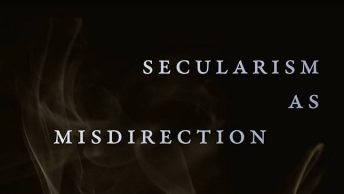Katherine Lemmons and Jeff Redding are seeking scholars to collaborate on an exciting new project that examine the growth of non-state providers of Islamic law and governance.
Project Statement
In recent decades, states around the globe have turned to non-state providers to furnish services traditionally offered by the state. These include security, health, and education. For reasons that range from neoliberal approaches to governance to overburdened court systems, law is increasingly among the social services offered by non-state institutions. While “alternative dispute resolution” (as the provision of non-state legal services is frequently called) has received support and praise in many circles, not every “alternative” to state courts and state law has generated equal enthusiasm. And indeed, non-state providers of Islamic law and governance have generated mostly consternation and contempt when they have attempted to resolve litigants’ disputes outside of formal state courts.
Over the past 10 years, fierce debates have erupted in Canada, the United Kingdom, India, and Kenya over “shari‘a courts” and the dispute resolution services that these institutions offer. These institutions of adjudication have faced much criticism. Common allegations include that shari‘a courts threaten the secular nature of the states in which they are situated, that they serve as sources of communal coercion and brow-beating, and that they threaten the civil and human rights of the women who appear before them.
Many individuals have contested this simplistic description of shari‘a courts, whether through on-the-ground activism or scholarly investigations and analyses. This project aims to build upon these earlier interventions by coordinating a trans-national, inter-disciplinary analysis of the operation of shari‘a courts throughout Asia and Asian diasporas. While there is already significant scholarship on shari’a courts in many parts of the world, including Africa and the Middle East, there is a paucity of detailed ethnographic analysis of such institutions in Asia and Asian diasporas. Further, what scholarship does exist is limited to one national context. By bringing together scholars working on Islamic law in a broad range of Asian nations and their diasporas, we hope to encourage a more nuanced and broader scholarly discussion about contemporary Islamic legal practice. And indeed, given the many characterizations of how women, in particular, are disadvantaged by these non-state religio-legal institutions, this project will focus especially on unpacking and diagnosing claims about gender disadvantage within shari‘a courts.
While each participant in this project will have a set of research interests and questions that is both distinct from and overlapping with any other participant’s questions, we would like each participant to address the following questions (amongst many possible other ones) in the course of their scholarly research and writing for this project:
1) Who initiates actions within the shari‘a courts that you are examining? Do women or men more frequently approach these institutions? What are the economic, ethnic, or linguistic backgrounds of those who approach them?
2) Why do people approach a shari‘a court instead of a state court? Are both kinds of courts approached simultaneously, but each for different purposes and reasons?
3) In the jurisdiction you are researching, what is the procedure that a shari‘a court follows in investigating, hearing, and deciding claims? Is this procedure different from that followed in a state court? Is there an appeals process?
4) What is the consequence of a decision from a shari‘a court? Is there a way to enforce the decision through the formal institutions of the state, or is social pressure the more salient outcome of a judgment? Are disputants satisfied with the outcomes of the hearings?
5) How are sex/gender roles implicated in the institution you are researching? How are sex/gender roles produced, remade, and/or reinforced in the context of these institutions?
Collaboration
Prof’s Lemmons and Redding are inviting scholars to participate on a project that investigates non-state Islamic dispute adjudication institutions in Asia and Asian diasporas. While there is already significant scholarship on shari’a courts in many parts of the world, including Africa and the Middle East, there is a paucity of detailed ethnographic analysis of such institutions in Asia and Asian diasporas. Further, what scholarship does exist is largely limited to one national context. By bringing together scholars working on Islamic law in a broad range of Asian nations and their diasporas,they hope to encourage a more nuanced and broader scholarly discussion about contemporary Islamic legal practice.
Please get in touch with them at jreddin3@slu.edu





